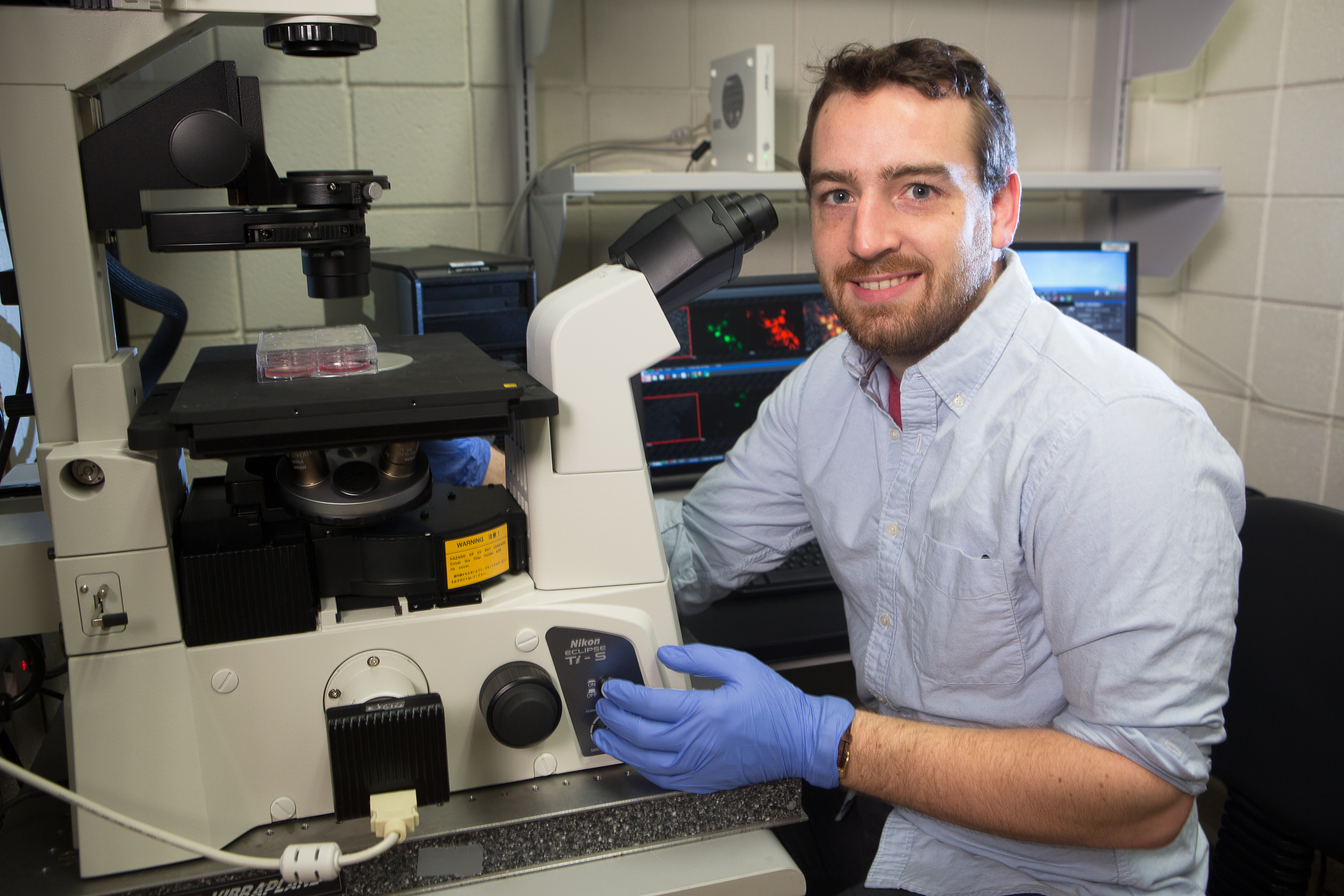
FAYETTEVILLE, Ark. – The Centers for Disease Control and Prevention reports that nearly 30 million people in the United States have diabetes, and that number is growing each year.
Type 2 diabetes, which starts with insulin resistance in the skeletal muscle, accounts for 90 to 95 percent of diabetes in adults. David Lee, graduate student in kinesiology at the University of Arkansas, is investigating a way to put an end to the disease – or at least lessen its severity.
Lee has spent the last year and a half researching how exercise can improve the health of Type 2 diabetics. Specifically, he has been looking at microRNA controllers of cellular processes as they relate to the disease by measuring protein and gene expression in the muscle tissue of diabetic mice.
“We’re trying to learn more about the molecular and cellular processes that govern the disease,” Lee said. “The more we know, the better idea we can have of what steps to take next.”
Lee’s findings have been significant. His research shows severe dysregulation of microRNAs in diabetes as related to skeletal muscle, which he believes will positively impact the disease and how it is studied.
“As far as we know, this dysregulation hasn’t been discovered before. So, if we can find a way to control the problem it would help improve the metabolic functioning of muscle,” he said.
Lee’s research earned him the top prize in the kinesiology category at the 2014 “From Abstract to Contract: Graduate Student Research Poster Competition” at the U of A. Though his findings have been rewarding, the process has not been without its difficulties.
“It’s been a challenging to keep the project within its scope and stay on task instead of trying to save the world,” Lee said. “It’s also frustrating when everything doesn’t work the first time exactly like you want it to.”
When faced with these challenges, Lee has been fortunate to have the support and guidance of his advisor Nicholas Greene, assistant professor of exercise science.
“We have a very good partnership. Dr. Greene has the know-how of how to do things, and I have the hours in the lab to make it happen,” he said.
Lee has collaborated with the Department of Kinesiology at Texas A&M University for some aspects of his research as well as multiple other laboratories on the University of Arkansas’ campus, but credits the Human Performance Laboratory and the College of Education and Health Professions for ensuring he had all of the necessary resources.
“We just got a generous contribution from the college that has greatly improved our lab facilities and helped in our ability to do better research,” he said.
Lee is slated to complete his master’s degree in May and hopes to move into a Ph.D. program so he may continue his research.
Topics
Contacts
Amanda Cantu, director of communications
Graduate School and International Education
479-575-5809,